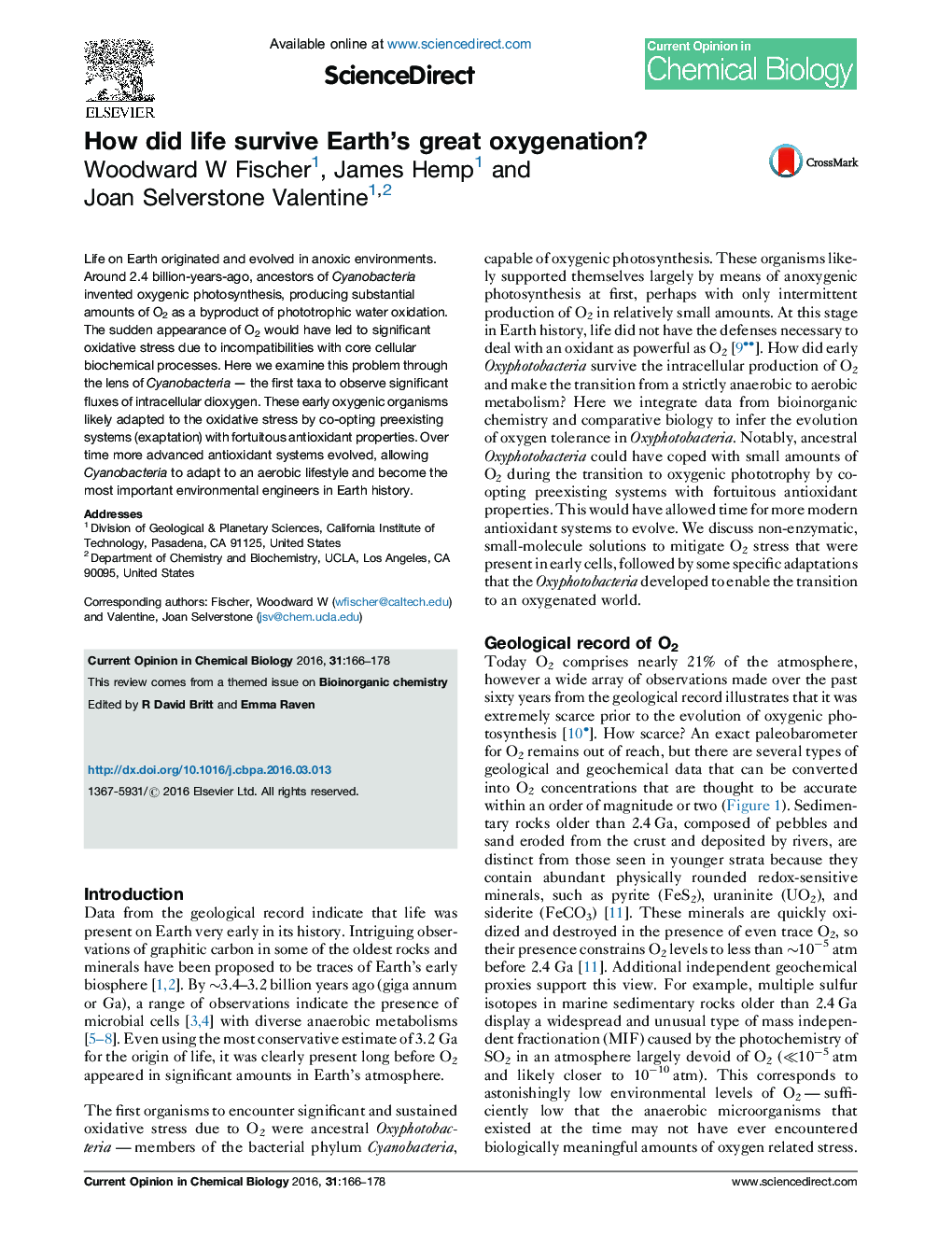| Article ID | Journal | Published Year | Pages | File Type |
|---|---|---|---|---|
| 7694303 | Current Opinion in Chemical Biology | 2016 | 13 Pages |
Abstract
Life on Earth originated and evolved in anoxic environments. Around 2.4 billion-years-ago, ancestors of Cyanobacteria invented oxygenic photosynthesis, producing substantial amounts of O2 as a byproduct of phototrophic water oxidation. The sudden appearance of O2 would have led to significant oxidative stress due to incompatibilities with core cellular biochemical processes. Here we examine this problem through the lens of Cyanobacteria - the first taxa to observe significant fluxes of intracellular dioxygen. These early oxygenic organisms likely adapted to the oxidative stress by co-opting preexisting systems (exaptation) with fortuitous antioxidant properties. Over time more advanced antioxidant systems evolved, allowing Cyanobacteria to adapt to an aerobic lifestyle and become the most important environmental engineers in Earth history.
Related Topics
Physical Sciences and Engineering
Chemistry
Chemistry (General)
Authors
Woodward W Fischer, James Hemp, Joan Selverstone Valentine,
